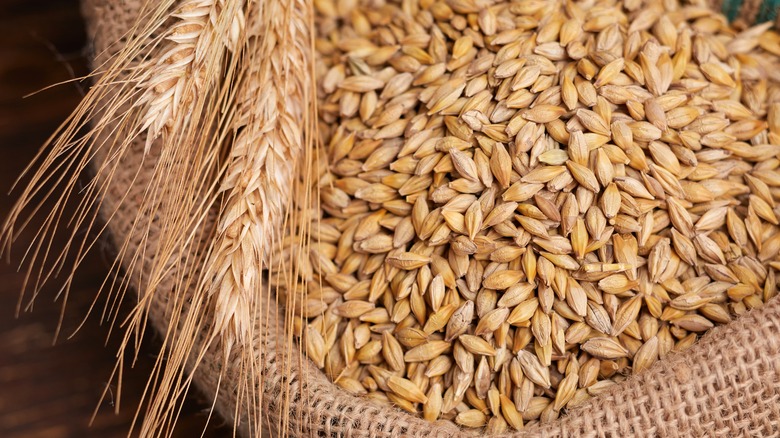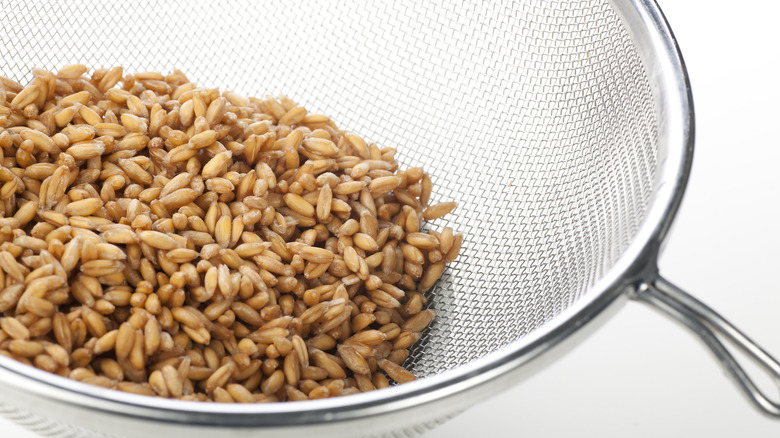The Only Way You Should Be Cleaning Whole Grains
We may receive a commission on purchases made from links.
If you've ever had a heap of farro, a hot bowl of beef barley soup, or a plateful of herbed freekeh salad, then you've already gotten to know the wide world of whole grains. They're a class of grains whose outer bran and inner germ remain intact as opposed to stripped away, as is the case with refined grains like white rice. Whole grains also boast a more robust nutritional profile than their refined counterparts (via The Nutrition Source). With plenty of fiber, vitamins, and minerals, whole grains might have protective health benefits when consumed, such as reduced levels of inflammation, cardiovascular disease, and type 2 diabetes.
For these reasons — and because they're darn tasty — whole grains have become both trendier and more widely available in recent years, according to Gluten-Free Living. If you've got a hankering for a grain bowl, you don't have to head to sweetgreen, because sourcing whole grains won't be difficult. But you'll want to know how to prepare the grains before cooking.
A rinse, and maybe a soak
When we get home from the supermarket, we set to work rinsing apples and soaking and spinning salad greens. So why is it that most of us don't clean whole grains such as brown rice and wheat berries? As Robin Asbell explains in "The New Whole Grains Cookbook," grains need to be cleaned like any other form of produce (via The Washington Post). Asbell recommends placing your whole grain of choice in a bowl, covering it with 3 inches of water, then massaging the grains to allow the chaff (i.e., seed coverings and other debris) and broken kernels to float to the top of the water. Pour those off with the water, then drain the grains well before cooking.
Then there's the question of soaking. Like dried beans, some hardier whole grains benefit from soaking overnight, which can both shorten and improve how they cook, the Post explains. Wheat berries, rye, and whole oats are good candidates for soaking, while quicker-cooking grains such as freekeh and pearl barley just need a rinse. So the next time you grab a bag of whole grain at the supermarket, set aside a few extra minutes for washing it properly before you get cooking.

